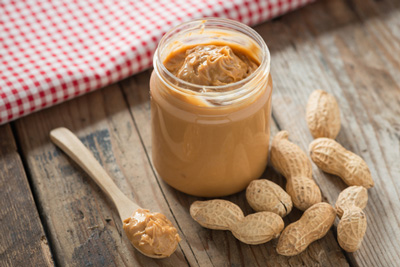Giving peanut-containing foods to infants may prevent allergy
- Like
- Digg
- Del
- Tumblr
- VKontakte
- Buffer
- Love This
- Odnoklassniki
- Meneame
- Blogger
- Amazon
- Yahoo Mail
- Gmail
- AOL
- Newsvine
- HackerNews
- Evernote
- MySpace
- Mail.ru
- Viadeo
- Line
- Comments
- Yummly
- SMS
- Viber
- Telegram
- Subscribe
- Skype
- Facebook Messenger
- Kakao
- LiveJournal
- Yammer
- Edgar
- Fintel
- Mix
- Instapaper
- Copy Link
Posted: 7 March 2016 | Victoria White | No comments yet
A clinical trial has demonstrated the benefits of consuming peanut-containing foods early in life to prevent the development of peanut allergy…


A clinical trial has demonstrated the benefits of regularly consuming peanut-containing foods early in life in preventing the development of peanut allergy and have shown that these benefits persist even after stopping peanut consumption for one year.


The trial, called the LEAP-On study, is an extension of the Learning Early About Peanut Allergy (LEAP)study. LEAP showed that regular peanut consumption begun in infancy and continued until 5 years of age led to an 81% reduction in development of peanut allergy in infants deemed at high risk because they already had severe eczema, egg allergy or both. At the end of LEAP, participants who enrolled in LEAP-On were instructed to avoid peanut consumption for one year to help investigators determine whether continuous peanut consumption is required to maintain protection against development of peanut allergy. After the avoidance period, peanut allergy prevalence was determined, as it was in LEAP, by an oral food challenge. Only 4.8% of the children who had regularly consumed peanut-containing foods during LEAP were allergic to peanut following the year of peanut avoidance. In comparison, the prevalence of peanut allergy was 18.6% among those who had avoided peanut throughout LEAP and LEAP-On.
“These new results build on the landmark findings from the LEAP study, which was the first to show that early introduction of peanut can prevent the development of allergy to it,” said NIAID Director Anthony S. Fauci, M.D. “They demonstrate that regular consumption of peanut-containing foods beginning in infancy induces peanut tolerance that persists following a year of avoidance, suggesting the lasting benefits of early-life consumption for infants at high risk of developing peanut allergy.”
The US National Institute of Allergy and Infectious Diseases (NIAID) supported the trial along with the Food Standards Agency (FSA).
Longer-term follow-up on the benefits of regular early-life peanut consumption planned
Led by Gideon Lack of King’s College London, the LEAP-On study enrolled 556 LEAP participants: 274 children who had regularly consumed peanut-containing foods from infancy to age 5 and 282 who had avoided peanut during the same period. Researchers then asked the original peanut-consumers and the original avoiders to avoid peanut consumption for one year. At the end of the avoidance period, the researchers assessed peanut allergy at age 6.
“The findings clearly demonstrate that the majority of infants who had consumed peanut in the LEAP study did in fact remain protected after they stopped eating peanut for 12 months, and that the protection was long-lasting,” said Dr Lack.
Daniel Rotrosen, M.D., director of NIAID’s Division of Allergy, Immunology and Transplantation, added: “The findings suggest that children who have regularly consumed peanut-containing foods from infancy to age 5 as a peanut allergy prevention strategy can safely switch to consuming peanut as desired as part of a normal diet. We expect that many will continue to enjoy peanut-containing foods consumed regularly, and others will maintain their non-allergic status with moderate intervals of diminished or no peanut consumption.”
The investigators are planning longer-term follow-up of the study participants to assess whether the benefits of regular early-life peanut consumption are maintained over many years when followed by consumption of peanut ad lib, or as much and as often as desired.






